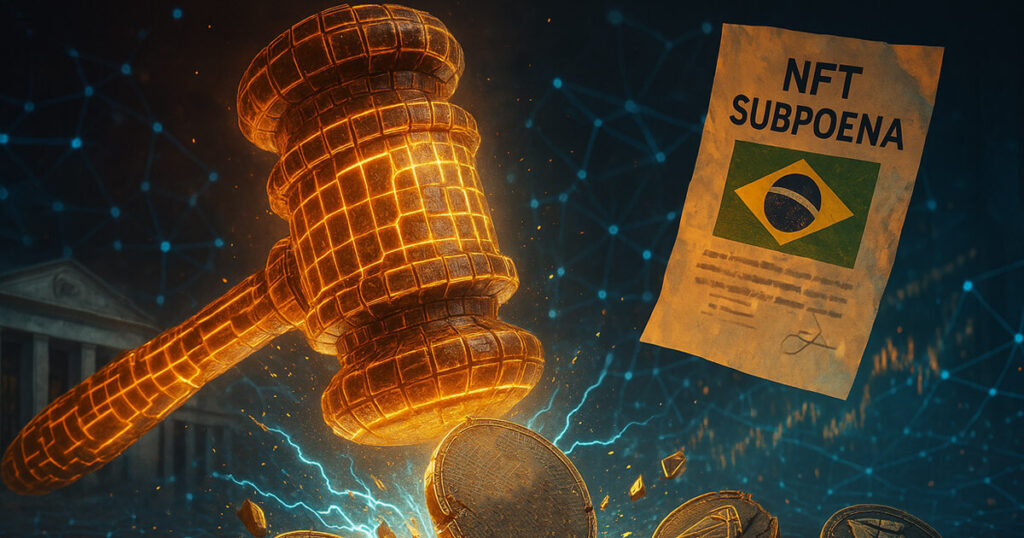A significant legal development has taken place in Brazil, where a court has approved the use of non-fungible tokens (NFTs) to notify unidentified defendants in a case related to missing Bitcoins (BTC) linked to the alleged pyramid scheme, BWA Brazil.
The court decision came in response to a legal action filed by the court-appointed trustee of BWA Brazil’s bankrupt estate. The trustee sought to pause the statute of limitations on claims involving crypto assets allegedly obtained using creditor funds. To achieve this, the estate requested permission to serve legal documents digitally by creating NFTs containing the necessary information and sending them to the wallet addresses involved in the initial transactions.
The court ruling emphasized the importance of preventing further harm to creditors who have already suffered multimillion-dollar losses. It authorized the trustee to use electronic communication via NFTs for notification purposes, stating that delays in legislation should not hinder the use of technological innovations in legal proceedings.
Additionally, the Public Prosecutor’s Office supported the trustee’s petition, further endorsing the use of NFTs for this unique notification process. The goal is to reach holders of digital assets whose identities are unknown but whose wallet addresses can be traced through the Bitcoin blockchain.
The estate claims that around 11,200 BTC were acquired using creditor funds, an amount currently valued at over $900 million. These transactions took place before the bankruptcy of BWA Brazil and are now subject to potential recovery efforts.
BWA Brazil, founded in 2017, presented itself as an investment company offering fixed monthly returns on BTC deposits, which later turned out to be unsustainable. The firm froze withdrawals in 2020, leading to significant losses for customers. Authorities estimated the losses at approximately $52.2 million, making it one of Brazil’s largest crypto-related pyramid scheme cases.
Despite efforts to reimburse customers through judicial recovery, the firm eventually filed for bankruptcy, with its founders, Paulo Roberto Ramos Bilibio and Jessica da Silva Farias, allegedly using the retained funds to purchase Bitcoin. Both individuals remain at large and have not been apprehended.
The trustee highlighted the traceability of blockchain transactions, noting that while wallet addresses may be anonymous, Bitcoin’s architecture allows for tracking individual coins. This enables authorities to follow the flow of assets, even in cases involving peer-to-peer transfers that bypass traditional intermediaries.
The use of NFTs for legal notifications represents a significant advancement in adapting procedural norms to accommodate the unique characteristics of blockchain-based financial activities. By leveraging blockchain technology, courts can navigate the complexities of decentralized asset flows and ensure that legal processes are effectively carried out.
Overall, the use of NFTs in this case highlights the evolving intersection of technology and law, showcasing how innovative solutions can be applied to address complex legal challenges in the digital age.

